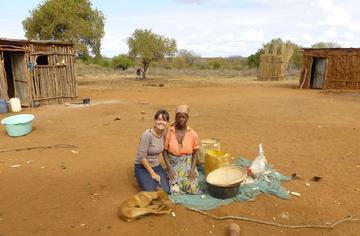Anna Bort-Caballé
Last update: 30 November 2015
The creation of the GLTFCA (Great Limpopo Transfrontier Conservation Area) is seen as a sustainable development economic opportunity for rural poor communities living in these areas. Nevertheless the creation of new interfaces between wildlife and communities can lead to changes in the dynamics of disease transmission between wildlife, livestock and humans. These changes can severely affect such communities, which strongly depend on agriculture and livestock for their livelihoods.
We evaluated livestock owners’ awareness of livestock diseases and the risk of infectious transmission in the GLTFCA, in the North of Gaza in Mozambique, through two participatory methods: the free-listing and the focus groups.
The study shows that livestock owners in the studied region are unaware of the diseases suffered by their livestock. They can describe symptoms, but they cannot assign them to a specific disease. The transmission dynamics of diseases between wildlife, livestock and humans is also unknown for them. The knowledge about the livestock diseases and their transmission did not differ significantly according to the investigated village, which could indicate a transmission of information between communities. The socio-cultural and economic importance of cattle compared to goats makes that farmers in the region give more importance to bovine diseases. The main diseases mentioned are: tick infestation, skin diseases, diarrhoea, lameness, and cholangitis for cattle. The two main reported pathologies affecting goats are scabies and circling. An etiological source of the diseases reported is estimated. Deficient veterinary services in these areas results in an inadequate knowledge on the livestock pathologic context. Farmers are helpless against the pathologies encountered. More technical and veterinary support is needed. More community participation opportunities for control and surveillance strategies of livestock diseases are necessary for proper management of animal diseases in the GLTFCA.
Last update: 30 November 2015

